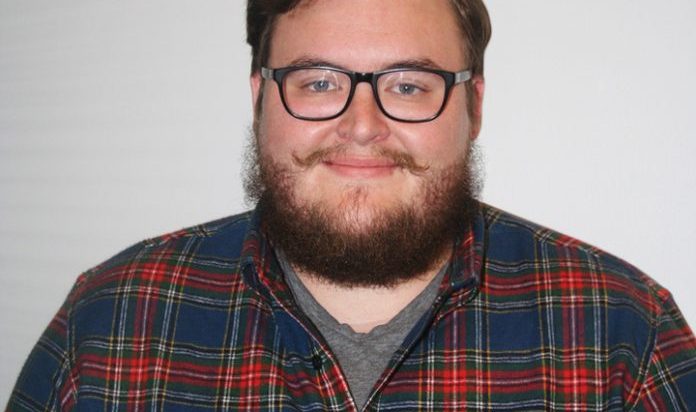How Sean Massingill Discovered a New Career Path—and Doubled His Salary in the Process

Sean Massingill has always had a wide range of interests, including coding. For a long time, he didn’t know what his dream job was—though he knew what it wasn’t. As an undergraduate, he set his sights on law school, but when he finally had acceptance letters in hand, he experienced a change of heart. “It wasn’t what I really wanted to do,” said Sean.
Over the next five years, he job-hopped through a handful of industries—from social media to retail to project management. Then, Sean saw an ad for Southern Methodist University Coding Boot Camp. Though he was passionate about programming, he had never considered it as a potential career path until that moment.
Here’s what happened next.
What inspired you to enroll in the Coding Boot Camp?
I’ve been coding since I was a kid—but I was completely self-taught. My problem was that I’d blow through coding books once and never look back. In the boot camp, you regularly return to course materials to develop a deeper understanding. There’s a level of comfort in that. While studying on my own, I’d gotten to the point where I was sufficient at low-level coding skills—but I craved the structure and commitment of a boot camp to make me even better.
What changes did you notice in yourself throughout the boot camp?
Before the boot camp, I thought I was a bad student because I hated going to class. In the boot camp, I found myself really excited to go to class every day. We were always learning something new, so there was no getting bored.
Beyond technical skills, what life lessons did you pick up in the boot camp?
In the boot camp, I was often tempted to work on projects alone. I almost did my final project by myself until my TA convinced me to get help. It was a big project. Looking back, there’s no way I would have gotten anywhere near completion in the given timeframe without a team. Now, I know my limits—and I’m no longer afraid of them.
After graduating from the boot camp, you started working as a junior developer at the software company Call Box. How did you discover this job?
During the boot camp, my instructor mentioned his day job at Call Box in almost every class. He’d always say, “I did this at work the other day. My team went through the exact same steps we’re following in class, and this is how we figured it out.” My class had its own Slack channel, and my instructor posted a job opening one day. So I applied—then started in December. At Call Box, I now work with that same instructor, along with a former classmate.
How did the boot camp prepare you for the interview process?
My interviewers were really impressed with the size and scope of the projects I completed during the boot camp—and we discussed each one at length. I also had a tech interview. We’d prepared for interviews like this in the boot camp, which was really helpful. At the boot camp, we were taught to think through questions instead of simply memorizing answers. I’ve heard about candidates who got rejected for saying, “I’ve seen this question before!” and writing down perfect responses during the interview process. Interviewers don’t want to see memorized answers—they want to see you problem-solve on the spot. And I was able to do that well because of the boot camp.
What’s one valuable lesson that you picked up at the boot camp and have applied to your new role?
The boot camp taught me how to look at someone’s code and understand their thought process. Coding is so open-ended; there are a thousand solutions to every problem. It’s like handwriting—everyone codes a little differently. I have a lot of coworkers, and we’re all trying to solve the same problem in different ways, which makes this a really useful skill to have.
What does your new job mean for your family?
Now, I’m making twice as much money as I was before. My new job also lets me work from home, which is a huge deal. My wife and I foster kittens, which we wouldn’t be able to do if I were in an office every day. We want to have a family in the future, and my new job puts me in a financial place where we can finally start thinking about that.
Looking ahead, what are your long-term professional goals?
My ultimate fantasy is creating a unicorn startup. But my realistic goal is to become a senior tech lead—to be the one others come to for help.
You’re in a completely different industry than you were a year ago. What has this career change meant to you?
Every day is different, and it’s really exciting. Coding is a lot more fun than any of my previous jobs were. Most importantly, I have a solid foundation now. I know my skill set, I know what I can do—and I know that wherever I go in the future, there will be an upward trajectory.

 Live Chat
Live Chat